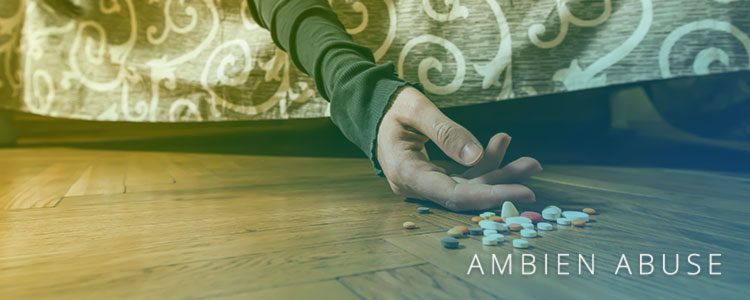Ambien withdrawal
Most people are prescribed Ambien as a short-term sleep aid, but this drug has addictive qualities that make the user prone to dependency. Once dependency is developed, a person will experience symptoms of Ambien dependence withdrawal if they stop taking it. The Ambien withdrawal symptoms can be painful and frightening. Unfortunately, this period of withdrawal is the first step down the road to recovery from addiction. In order to successfully and safely quit Ambien, a person usually has to taper off of the drug. Doses are decreased in increments, sometimes with the aid of other medications. This process must be administered by a medical professional, which is why it’s important to rely on a safe, medically supervised detox center. Withdrawal symptoms can also include issues in an individual’s emotional and social life, but behavioral counseling can ease and repair these negative consequences. These elements combined make Ambien addiction withdrawal extremely difficult, and in some cases, it can be dangerous to undertake alone. Better Addiction Care can help you understand what to expect from the withdrawal process and find the help that you need.

Anyone who uses Ambien faces side effects and the possibility of dependency, though the effects are more prominent in groups such as the elderly and those who have previously struggled with drug abuse. People with a severe addiction might experience Ambien withdrawal symptoms during the first four to eight hours after discontinued use. The most severe symptoms will begin after a 24-hour period. Symptoms typically peak after three to five days. Symptoms typical of mild Ambien addiction withdrawal include rebound insomnia, sweating, hand tremors, nausea, anxiety, stomach cramps, and irritability. After the first 24 hours, more severe and high-risk symptoms may set in. These can include seizures, panic attacks, suicidal thoughts, fever, psychosis, and uncontrollable crying. These effects can be life-threatening, so it’s important to get help before going through Ambien dependence withdrawal. Medically assisted withdrawal is safer and more comfortable, with a higher chance of long-term success.
You should not have to feel trapped and alone while attempting addiction recovery. Allow the compassionate and professional specialists at BetterAddictionCare to help you find the addiction counseling option that is the best personal fit for you. Call today or fill out our contact form to have a confidential conversation and begin creating a customized plan that will help you start healing. We are accepting new clients and can guide you through the process of choosing an addiction recovery treatment center near you. We understand the difficulties of addiction and recovery. At BetterAddictionCare, our mission is to hear your story, meet your needs, and set you on the path to successful Ambien addiction recovery.






